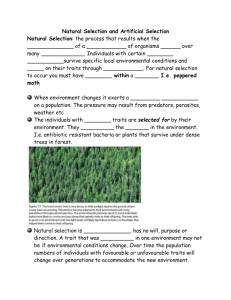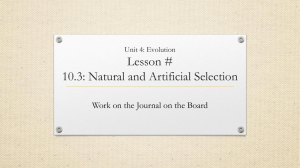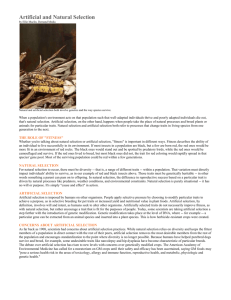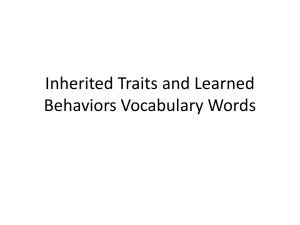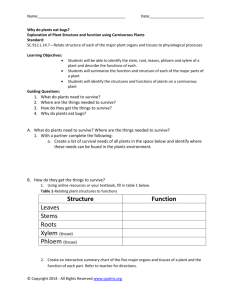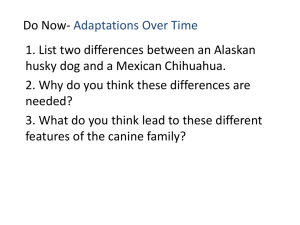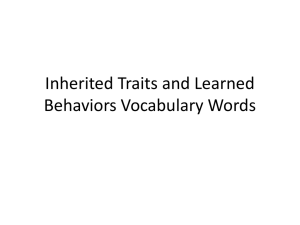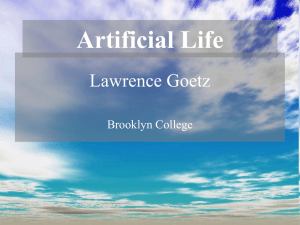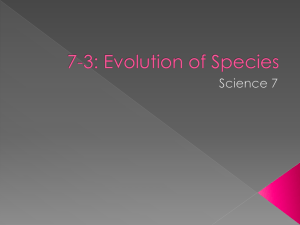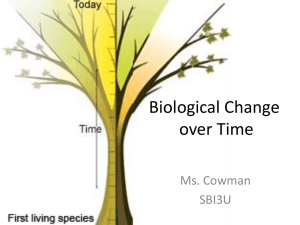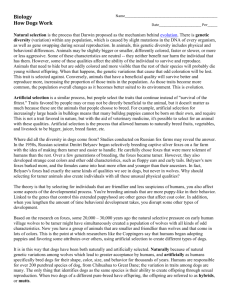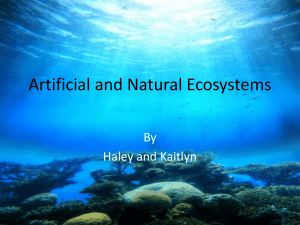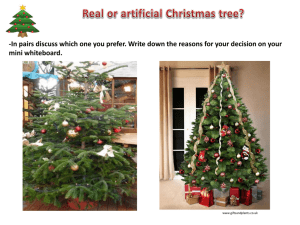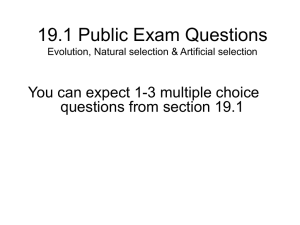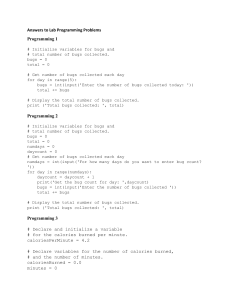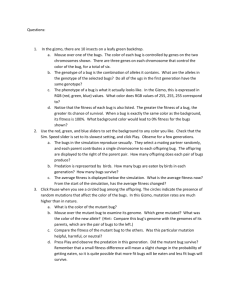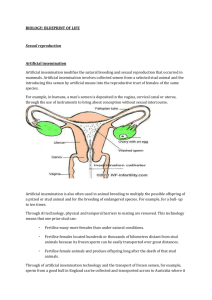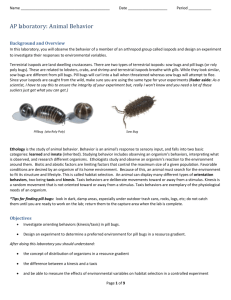The Best Selection
advertisement
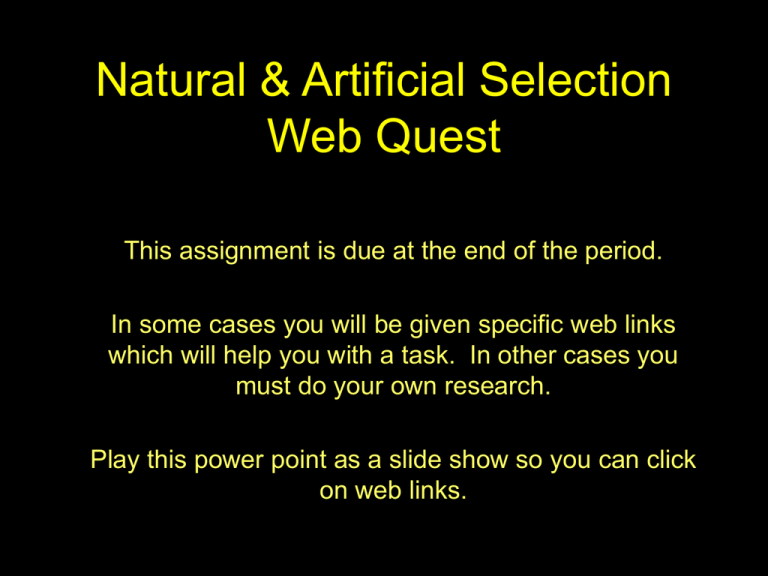
Natural & Artificial Selection Web Quest This assignment is due at the end of the period. In some cases you will be given specific web links which will help you with a task. In other cases you must do your own research. Play this power point as a slide show so you can click on web links. Green bugs show up more on tree bark than brown bugs do. Natural Selection Nature “selects” which individuals will survive – those with the best characteristics adapted to their environment. Birds eat the green bugs because they are easier to see. This leave mainly brown bugs available to reproduce … and they produce brown offspring. Over time the green bugs die out while brown bugs survive. Charles Darwin • in 1859 Darwin published Origin of Species by Means of Natural Selection • his theory of natural selection came from exploring & collecting specimens from different habitats … most notably… from the Galapagos Islands • the Galápagos finches illustrated how the fittest or best-adapted organism for a specific environment survived The Theory of Natural Selection • all organisms produce more offspring than can possibly survive • there is incredible variation within each species • some of these variations increase the chance of an organism surviving to reproduce • over time variations that are passed on lead to changes in the genetic characteristics of a species Natural selection “creates” a species that is better able to survive – due to its characteristics or behaviors. For example, look at the katydid (a type of cricket) in the picture. Over time crickets that had a the best leaf-like appearance survived more often because they could hide from predators. Now this is the normal or most common appearance for the species. Artificial Selection Humans select individuals with desired traits and breed them to produce offspring also with those traits. This is called selective breeding. Its like “intentional reproduction”. Over time only those traits will survive – sometimes creating one or many new species. For example, archaeological records show that dogs have been domesticated for over 14,000 years. They started as wolves who were more tame and stayed around early human camp sites. Over time the wolf pups became tamer and tamer, and humans started breeding those animals that had desirable traits – such as for hunting, herding or companionship. Today there are hundreds of different types of dogs… all descendants from the wolf. CORN Here are some examples of artificial selection from the world we live in. Have you ever heard of purple, white or yellow carrots. Percherons – horses bred to do heavy work. Scottish Highland Sheep – bred to withstand cold, harsh winters. CLONING Biotechnology is humans using technology to speed up or improve on artificial selection. ARTIFICIAL REPRODUCTION GENETIC ENGINEERING Cloning Making a genetically identical copy of a living organism. Click on this icon for some info on cloning. Dolly the sheep was the first animal ever to be cloned… it happened in 1996. She was an exact copy of her mother. Artificial Reproduction Using technology to help create a new life Artificial Insemination Watch the Video Read the News In Vitro Fertilization Genetic Engineering Any technology that directly alters the DNA of an organism. ACQUACULTURE Genetically Modified Crops Read About Acquaculture in Canada Learn about Genetically Modified Fruits & Vegetables Watch a Video TRANSGENETICS
